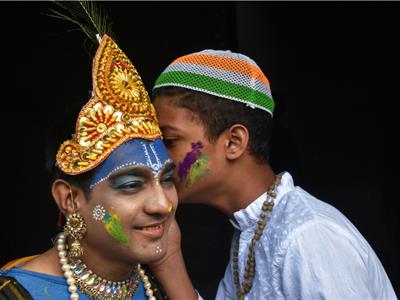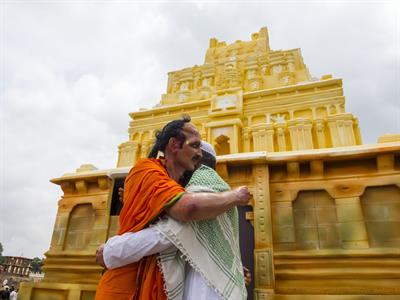
PUMPA - SMART LEARNING
எங்கள் ஆசிரியர்களுடன் 1-ஆன்-1 ஆலோசனை நேரத்தைப் பெறுங்கள். டாப்பர் ஆவதற்கு நாங்கள் பயிற்சி அளிப்போம்
Book Free Demo4. Every child is born, with some inherited characteristics, into a specific socio-economic and emotional environment, and trained in certain ways by figures of authority. I inherited honesty and self- discipline from my father; from my mother, I inherited faith in goodness and deep kindness and so did my three brothers and sister. I had three close friends in my childhood — Ramanadha Sastry, Aravindan and Sivaprakasan. All these boys were from orthodox Hindu Brahmin families. As children, none of us ever felt any difference amongst ourselves because of our religious differences and upbringing. In fact, Ramanadha Sastry was the son of Pakshi Lakshmana Sastry, the high priest of the Rameswaram temple. Later, he took over the priesthood of the Rameswaram temple from his father; Aravindan went into the business of arranging transport for visiting pilgrims; and Sivaprakasan became a catering contractor for the Southern Railways.
Explanation:
Kalam believes that when a child is born, they are born with no judgements or preconceived notions about society. Every child is born into a different social, financial, emotional background. A child's upbringing determines his ideologies, thoughts and actions for the rest of his life. Their environment shapes and moulds them. They grow up in a society that has rigid biased rules and beliefs around things like caste, religion and gender stereotypes. For example, as a boy grows up, if he is fed the idea that he is supposed to be tough and crying makes him feminine, he grows up with the same ideology and propagates it to his next generations as well. A child does not know to differentiate between people based on any notions or treat anyone unequally. They are fed these thoughts by parents and society. If he is taught good values from a young age, he will grow up imbibing these values.
Kalam says that he inherited self-discipline and honesty from his father, as he always guided Kalam in the right manner. He saw his father wake up and perform his duties sincerely every day, which impacted him. He learnt to be kind-hearted from his mother Ashiamma, as she would feed needy people with the little provisions that she had. All his brothers and sisters, too, grew up learning good values from their parents. He had friends in school just like every other kid of his age. He had three close friends Ramanadha Sastry, Aravindan and Sivaprakasan. The three friends were all from upper-caste Hindu families, as did their names indicate. As children, they grew up together without any differences. They did not know what caste or religion even meant. All they cared for was friendship.

Hindu Muslim kids who are friends*
One of Kalam's friends, Ramanadha Sastry, was in fact, the son of the high priests of Rameswaram temple, Pakshi Lakshmana Sastry. Kalam emphasises here that India is a country of cultural and religious diversity. We live in unity in spite of our differences. Unless a third party comes into the picture and tries to promote enmity between two diverse groups or inflict all these notions in children's minds, people can live together ignoring these differences. Ramanadha Sastry went on to take his father's job as a priest in the temple. Aravindan went into the business of arranging transport for visiting pilgrims, as Rameswaram was a famous place for pilgrims to visit, and Sivaprakasan became a catering contractor for the Southern Railways. Kalam underlines the fact that people can be different and still choose to be each other's friends and love each other.

Hindus and Muslims Co-exist**
Words with difficult meaning:
| S.No | Words | Meaning |
1 | Inherited | To pass down something to heirs |
2 | Authority | The control/ rights to do something |
3 | Orthodox | Following traditional beliefs of a religion |
4 | Priest | One who serves and performs rites in the temple |
5 | Contractor | A person who enters into an agreement to give a service |
6 | Pilgrims | A person who travels to a sacred place |
Reference:
- National Council of Educational Research and Training (2006). Beehive. My Childhood - APJ Abdul Kalam (pp.68-79). Published at the Publication Division by the Secretary, National Council of Educational Research and Training, Sri Aurobindo Marg, New Delhi.
- Hindu Muslim kids*: Papai / Shutterstock
- Hindus and Muslims Co-exist**: Arun Sambhu Mishra / Shutterstock